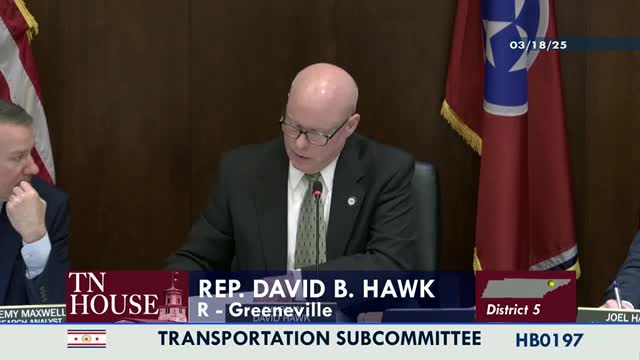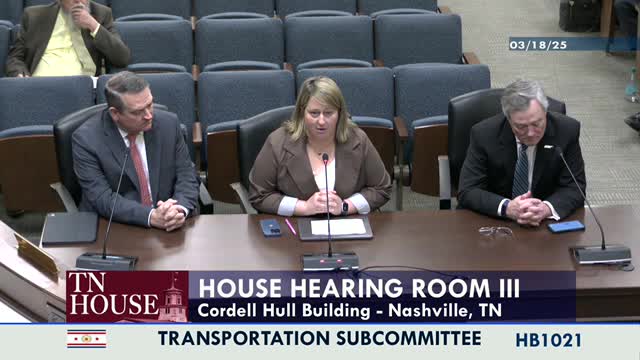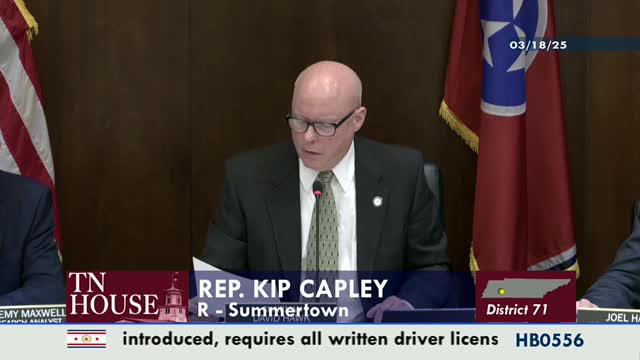Article not found
This article is no longer available. But don't worry—we've gathered other articles that discuss the same topic.

Transportation subcommittee advances bill directing TDOT to adopt policy for removing camping personal property

Transportation subcommittee: summary of committee actions and votes

Bill to clarify compensation for billboards rolled to 2026 calendar after industry and TDOT talks

